Beetham Police Youth Club flowers bloom
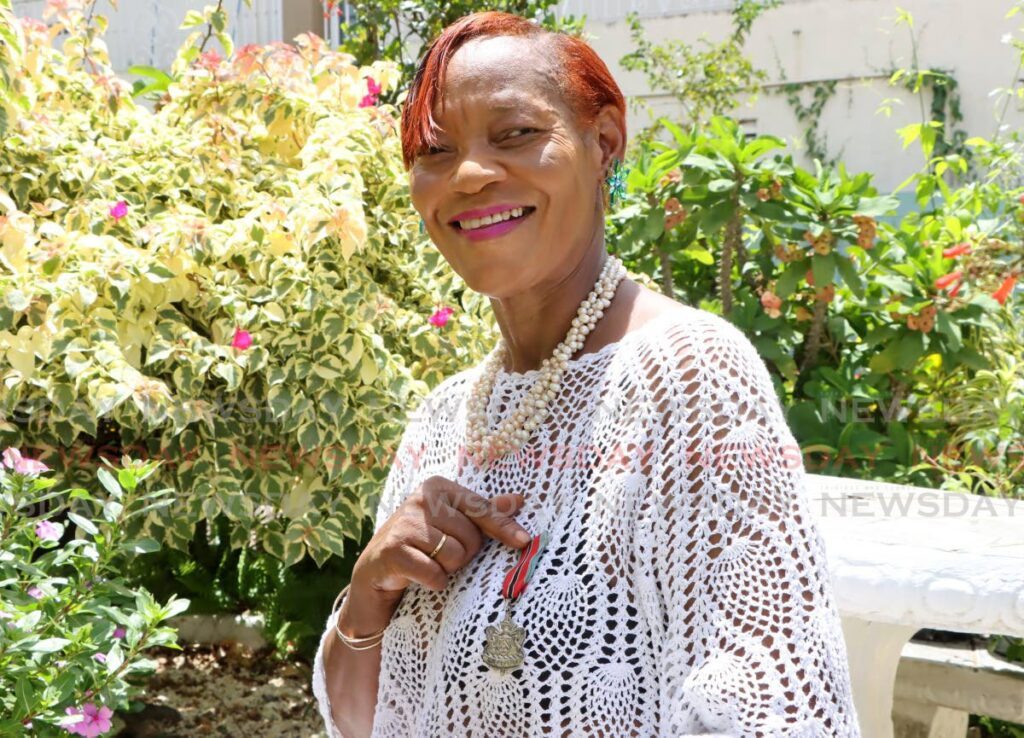
You reap what you sow.
Two former members of the Beetham Youth Club have bloomed from the seeds sown by retired inspector Sheila Prince and the Beetham Police Youth Club.
WPC Lauren Fraser-Churche and Isaiah Phillip, 26, last week credited the institution and its founder with the positive direction their lives have taken.
Prince started the Beetham Police Youth Club in 1996.
As a member of the Community Policing Secretariat at the time, she was asked by a fellow officer to give a lecture to children and parents at the primary school in Beetham. She said the children had no discipline and they were unkempt. She did not like what she saw so she took it upon herself to return every Saturday to help them improve themselves and their lives.
Eventually, the club was made official and she approached the Housing Development Corporation (HDC) about an abandoned building it owned in Beetham. The HDC had it renovated and gave it to them and the home of the club was officially opened in 2005.
“I love to teach children capacity building. I feel it’s important that children must be taught building character, about integrity, about honesty, knowing who they are, their appearance, consequences for their actions and so on.
“We had a structured programme. I always say it’s not only about outings and concerts and cinema but what comes after. You must prepare them for adulthood, prepare them for the world. You must strike a balance,” Prince said during an interview at Newsday's Pembroke Street, Port of Spain office on April 18.
She recalled people, including police officers, would tell her she was wasting her time with the children and that they were “little criminals” but she did not see them that way. She said she saw young people trying to survive and crying out for help. She wanted to raise them up.
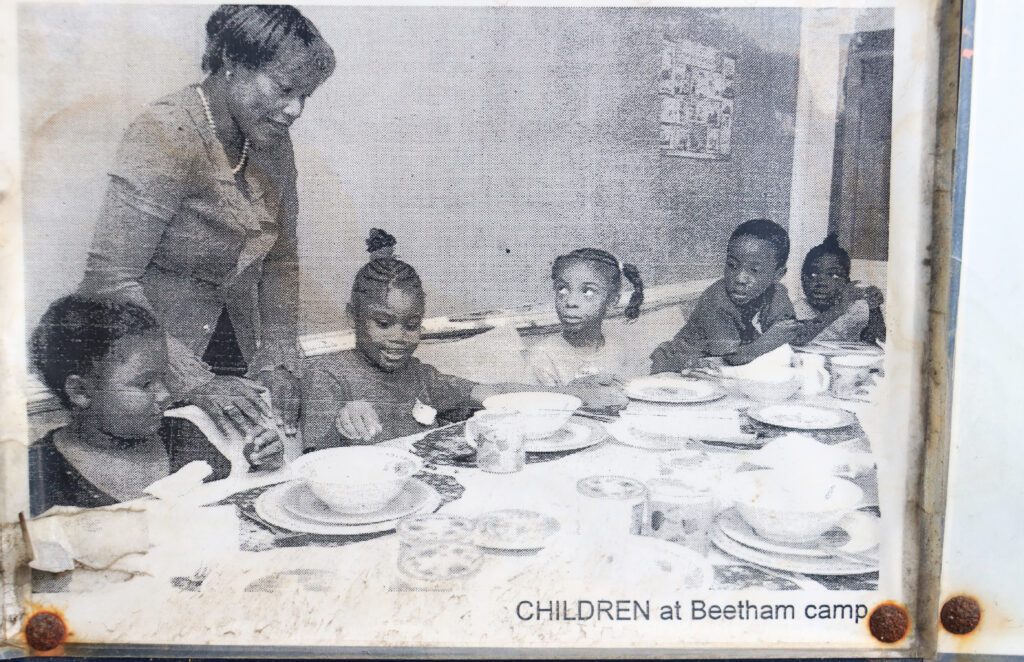
“That was why I had the place done up in a way that it was a home away from home. They must see life as more than just what they see in their environment. They must be able to aspire to be somebody, to rise above.”
She taught them etiquette, music to help with math and discipline, chess to help them learn how to think and strategise, spirituality including respect for others’ religions and they performed at elderly homes and hospitals at Christmas to show they should show love to others.
They also participated in the National Music Festivals and various essay writing competitions. During the July/August vacation, Ishmael M Khan Bookstore in Port of Spain would hire six of the older members, helping them learn about responsibility.
In 2011, Prince received a Public Service Medal of Merit Silver and continued running the club without pay after her retirement in 2009 until she had to shut its doors in 2020 during the pandemic.
She said there were many youth programmes available but the children could not leave their community for fear of stepping into another gang’s territory. Also young people in general were not listening to the radio or watching local TV so the information on those media was not reaching them. She suggested someone organise a caravan and take those programmes into the Beetham.
“If you’re not going inside there and you’re not reaching them where they are, how do you expect to have a change? It sounds good when you say you have programmes but in reality, are you really doing anything to change these people’s lives?”
She said the transformation would start by gently bringing them to a certain level of consciousness by letting them know what they are doing is wrong instead of coddling them or wanting to be their friends.
Prince admitted not all of her former members grew into successful people or were able to escape the criminal environment. When she saw those who slipped through her fingers, she felt sad and that more could have been done.
She said another reason crime in the country was not improving was because the people in whom the country put its faith were “frauds." She said good role models were needed. Just because a person had status, money or a profession did not make them good role models as those things did not make them mentally, socially or morally mature.
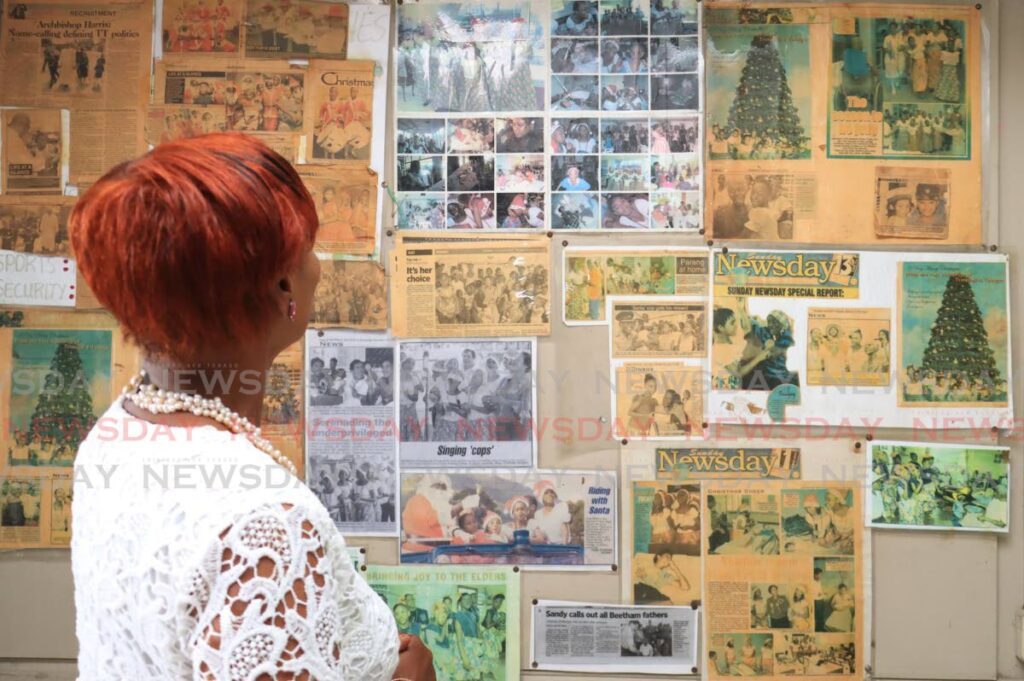
What was needed, she said, were people with big hearts.
“We have to be careful with who we consider to be mentors and who we consider to be role models. Sometimes we consider somebody to be a good mentor but their morality has a question mark.
“What are they telling your child? What are they teaching? Yes, they might have qualifications. Yes, they might have status. But that's not who they are. So we need to really think about who we consider a mentor and role model.”
Good emerge from depressed communities
Fraser-Churche, a police officer for the past 14 years, said as a youth she had no idea what she wanted to do with her life but Prince encouraged her to take the police entrance examination.
“I always liked to dress up and look cute so I figured I could get a bank job. I really didn’t think about the police service at the time but she (Prince) thought I should go try it. I’m so thankful for her. Because of her, I have a career. If it wasn’t for her I wouldn’t have been here.”
Fraser-Churche said she moved to Beetham when she was around 12 years old. At the time, the club meetings were taking place at the Excel Beetham Estate Government Primary School.
Her brother was attending the primary school and told their mother about the club so she sent them both. She remained a member from ages 13-18 and particularly enjoyed the outings as she got to experience different parts of Trinidad while riding on a police bus.
“I also liked at Christmas when we would go around singing to the elderly homes and homes for the displaced. That was fun for me. Seeing others happy brought happiness to me.”
Prince and others facilitated etiquette classes, taught them how to behave in public, morals and values, and respect for yourself and others. She said Prince talked to them about life and how to deal with situations that may arise, about doing the right thing and being honest. She said Prince was “real” and tried to prepare them for the real world.
Fraser-Churche said Prince was like a second mother to her and she now had a lot of Prince’s personality traits. She kept in touch with Prince and made herself available when Prince called for assistance so, in a way, she never really left the club.

She said the club helped her to channel her energy and Prince gave her a start in life. She said they moulded her into the woman she is today and she is very thankful for them both.
She described Prince as a no-nonsense person and she did not have a problem with that because the club members needed to learn discipline.
“I understood her at the time. A lot of people came and left but I knew she meant well. She wanted the best for us and I wanted the best for myself so I learned how to deal with her sternness and stuck with it.”
She added that she was always a quiet person who kept to herself and stayed inside a lot. So when a close family member “got caught up in the influences” in Beetham, she was never tempted to get involved. She said even now when she goes to visit family in the area, people show her respect because of the way she always carries herself.
“I saw it in my house so I know you have to have a strong mindset growing up on the Beetham. You have to be more of a leader than a follower to do the right thing.”
Fraser-Churche said there were always gangs in the Beetham. And even though the level and type of activities is much worse now, growing up in the Beetham was not easy. To make things more difficult, she said, outsiders looked down on her and others from the Beetham, Laventille and other depressed communities.
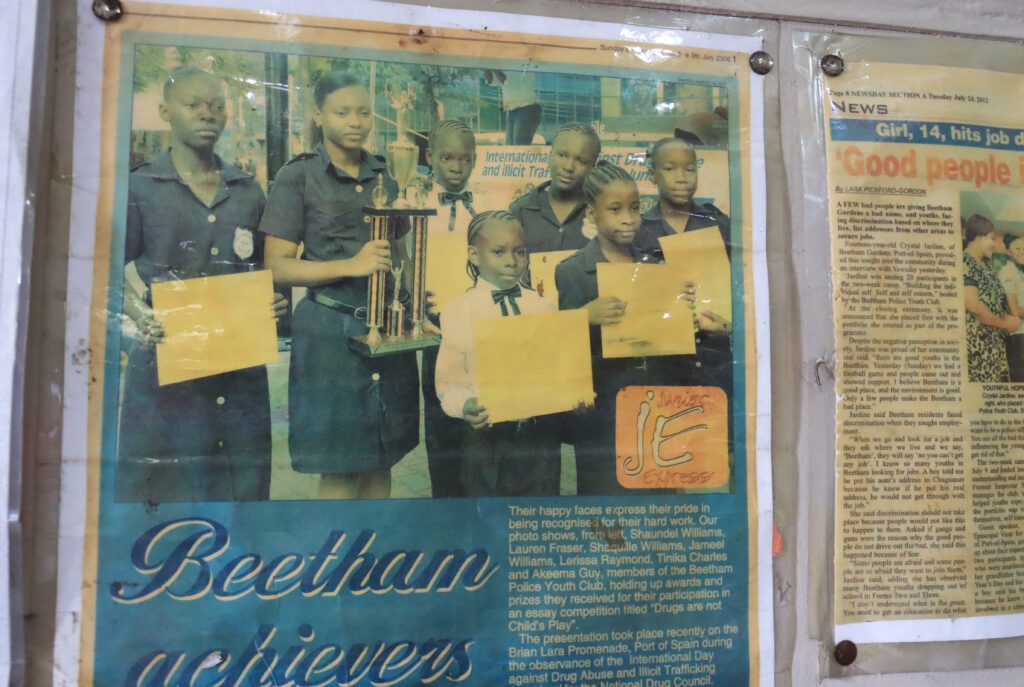
Because of that stigma and opposition, and because people watched them more closely, waiting for them to make a mistake, they had to fight to prove themselves.
“Even in the police service, in the beginning, there was always a fight (to prove herself). But being a product of the police service, coming from the youth club, really eased the way when it came to some people’s attitude,” she said.
In 2021, Fraser-Churche graduated with an associate degree in social work from The College of Science, Technology and Applied Arts of TT. She also did several certificate classes over the years and hopes to eventually do her master’s degree.
Fraser-Churche said, “I think I chose social work from growing up in the ghetto. I always loved to help people, and listen to and interact with people. That was always me. There’s a saying, ‘Who feels it knows it.’"
“You have to really live there and experience it to know because a lot of people will talk and say all kinds of things. I've heard it all. I think I could prove people wrong, that good things could come out of places like Beetham and Laventille. There is good in Laventille. There is good in Beetham.”
Passion for youth development
Isaiah Phillip, 26, told Newsday during a cellphone interview last week he was a member of the Beetham Police Youth Club for about four years from the age of nine.
He is now a financial research officer at the TT Securities and Exchange Commission and is working towards his master’s in financial management at the Arthur Lok Jack Global School of Business. He also graduated with a bachelor’s degree in banking and finance from UWI in 2020.
Phillip said his main interest was law but the course was not available at The UWI on a part-time basis at the time. Finance was his second option as he was able to work and attend classes on afternoons.
He said financial hardship was something most people in his community faced but he had a big family who always supported him and his mother. What she could not provide, his aunts and uncle helped. He said that kind of support was something not many in the community had so it was easier for him to not be tempted to get involved in criminal activities.
In addition, his mother was a reserved person and he adopted a lot of her ways. Also, his standard four teacher was very serious about education and that impacted him. He began to focus more on his schoolbooks and less on playing with his friends. As a result, he became a bit removed from the community and so felt no pressure to join any gang.
He passed for Woodbrook Secondary School and did his A Levels at Trinity College, Moka.
At the club, he enjoyed the field trips and was able to visit places he would not have otherwise, especially during school vacation and he said the club’s camp was better than staying home or playing in the streets.
“We had so many different field trips that opened up our minds, realising the country was not just the community or Port of Spain, that we could have a life beyond Beetham.
“And one of the main takeaways from the youth club to this day is something Ms Prince would always say. It was even on the wall. ‘Do the right thing because it’s the right thing to do.’ That is firmly ingrained. So a lot of the things I do, that thought always comes to mind.”
There were also cooking classes, the members learned to play instruments, performed parang and had workbooks on development topics which served him well in his life and career. He said the activities and Prince kept him from getting involved in what was happening in the community.
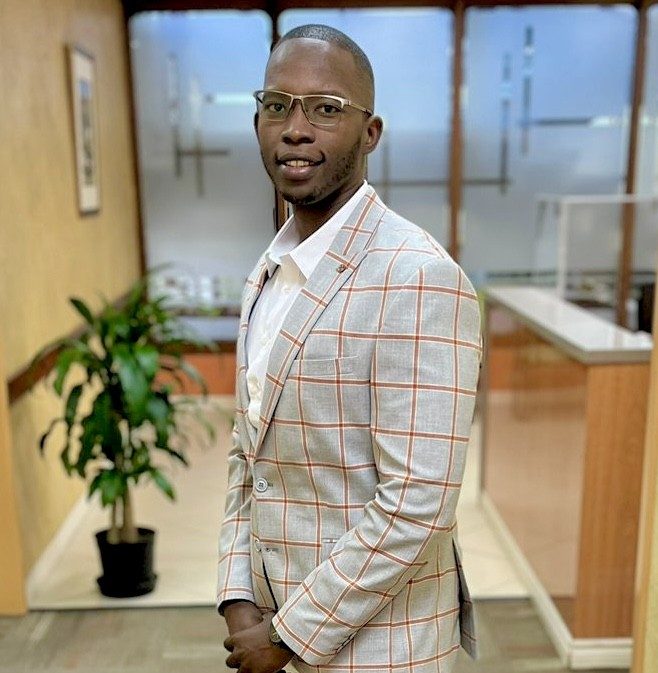
“Ms Prince was very strict but, as you grow, you get to understand she has a passion for youth development and she really wants the best for children from the community. And that's where she comes in to see how best she could assist us in our developmental years. Over the years, as you grow, you get to understand the importance of those types of role models and the value that they bring to the community.”
After leaving the club he continued to visit Prince and he later assisted her in organising the club’s financials.
“Because of my involvement in the youth club from a young age and seeing people like Ms Prince do positive stuff and work with youths, mentorship and youth development is something I myself like to do now. I think that’s because of her impact,” he said.
Phillip said he saw the value of those types of youth clubs so he now volunteers at the Inter-Agency Task Force Police Youth Club at the Beetham Community Centre. He was also working on a project with Global Shapers, an initiative of the World Economic Forum, providing youths with employability skills and mentorship opportunities.
In addition to Prince, he said his mother was his main support who kept him on the right path. She gave him the leeway to explore various options, only insisting those options were positive.

Comments
"Beetham Police Youth Club flowers bloom"